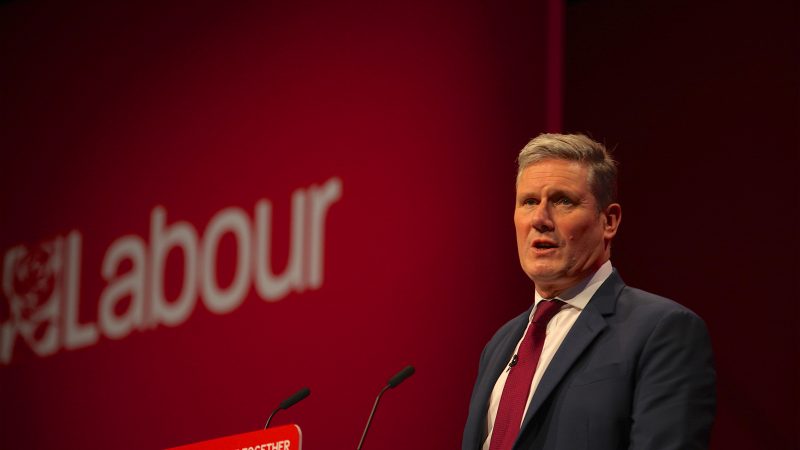Mike O'Sullivan
I cover the economic and financial world outside the USA, for the USA.

Activists carry placards during a protest in front of the Chinese consulate in Manila on February ... [+] AFP VIA GETTY IMAGES
The upturn in the world economy and the assured arrival in power of the Biden administration will have many commentators pondering as to whether globalization is back, after a violent interregnum during the Trump years.
I believe globalization is finished. To take trade as an example, if trade bounces back it will have changed in two important ways, both of which make the world less interdependent.
Trade will change
First, trade and state led investment will be driven by the notion of ‘strategic autonomy’ – that they should be structured so as to reinforce a country’s geopolitical power as well as its prosperity. Second, advances in technology and the corporate strategy lessons from the coronavirus crisis mean that business models can be more technology driven, more decentralized and arguably less labour intensive, something that may impact many south Asian countries.
Another important element is that the one aspect of globalization that many ignore is political. Globalization happened because of a shift in political models – communism fell, and thereafter the ‘American’ model traversed the world (again especially Asia), the number of democracies rose, and human development improved manifestly across the world.
Yet, this sense of ‘one system’ is now at an end – the global financial crisis and the Trump Presidency have sapped its credibility. Moreover, globalization has not transformed the world politically in the image of the American model. Indeed, there is plenty of evidence to suggest that the flourish in ‘democracies’ has halted and is reversing. Take for example the the Economist Intelligence Unit’s Democracy Index which in 2020 fell to its lowest level since 2006, and with 70% of countries covered showing a deterioration in the quality of their democracy.
Hong Kong
What is now important and noticeable is that more and more events are occurring that push back and check the liberal democratic model. The most prominent of these is the quenching of Hong Kong’s ‘two systems’, and event that bookends the fall of communism. The failure of liberal democracies to support the pro-democracy movement in Belarus is another and is the dereliction of many world institutions such as the WHO (World Health Organisation).
The abject failure of Josep Borrell’s diplomatic mission to Moscow and a surge in military posturing in and around the South China Sea (for example ‘scrambles’ of Japanese fighter jets are at a record, averaging three per day) also point to a hardening of political arteries.
Against this backdrop, a new model is emerging to challenge that of liberal democracies and for the first time since Ronald Reagan bemoaned the ‘evil empire’, we have two competing ‘ways of government’. I call them the Levelling and Leviathan models, drawn from the mid 17th which was formative period for the emergence of the nation-state, elaboration of democracy and thinking on how government should work.
Levellers
The Levelling model (from the 17th century English movement who crafted the ‘Agreement of the People) is based on the popular rediscovery of liberal democracy in the light of all of the challenges our world throws at it – indebtedness, climate damage and the penetration of social media into mindsets. Most of Europe, including the UK and the Democratic Party in the USA and naturally the Biden administration are in this camp. Indeed, on Friday President Biden staked a claim to revitalise liberal democracy when he stated he would ‘make a strong and competent case that democracy is the model that can best meet the challenges of our time’.
On the other side, are the Leviathans – who following the sense of Thomas Hobbes’ 1651 book ‘Leviathan’ see the need for a ‘supreme’ actor to control a country’s fortunes and where its citizens enter into a bargain with that leader. China today is a ‘Leviathan’ – its citizens exchange liberty for prosperity and national prestige, and there are growing signs that its President covets a long, unchallenged (ask Jack Ma) period in power. Its not clear to me that Russia for instance is a ‘Leviathan’ country, given the lack of a cohesive national project and the lack of a real developmental contract between Vladimir Putin and his people.
A world defined by ‘recuperating liberal democracy’ and ‘tough managed democracy’ will have many implications. Rhetorically it will make the role of the likes of Joe Biden easier if he can frame world affairs along these lines. It may also force the debate on European values – eastern European states may be forced to give up the illusion that they can pick and choose the variety of democracy they adhere to.
Finally, the battle of the competing attractions of the ‘Leveller’ versus ‘Leviathan’ model will be played out across many emerging nations. Ethiopia is one such example, where an open economy and the beginnings of a stable polity were beginning to take hold but that has recently lurched towards a more controlling, and brutal style of government. Think also of Nigeria – where inequality is growing and where unrest could become a serious socio-political issue. Nigerians may soon ask themselves if they want to replicate China’s success or whether Britain is a model for them.
Mike O'Sullivan
I am the author of a book called The Levelling which points to what's next after globalization and puts forward constructive ideas as to how an increasingly fractured world can develop in a positive and constructive way. The book mixes economics, history, politics, finance and geopolitics. Markets are the best place to watch and test the way the world evolves. Most of my career has been spent in investment management, the last 12 years at Credit Suisse where I was the chief investment officer in the International Wealth Management Division. I started my career as an academic, at Oxford









